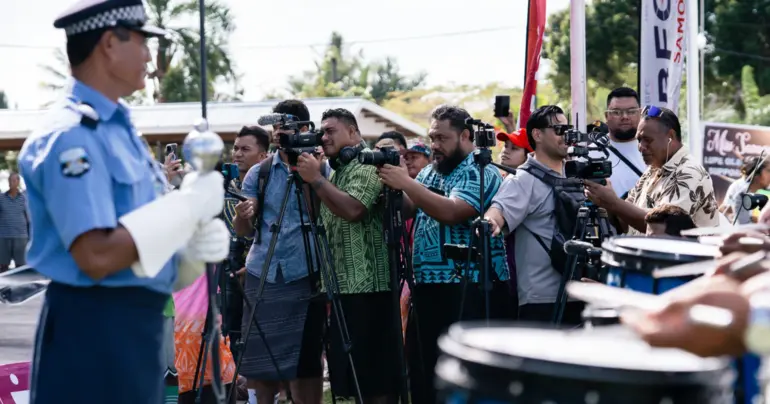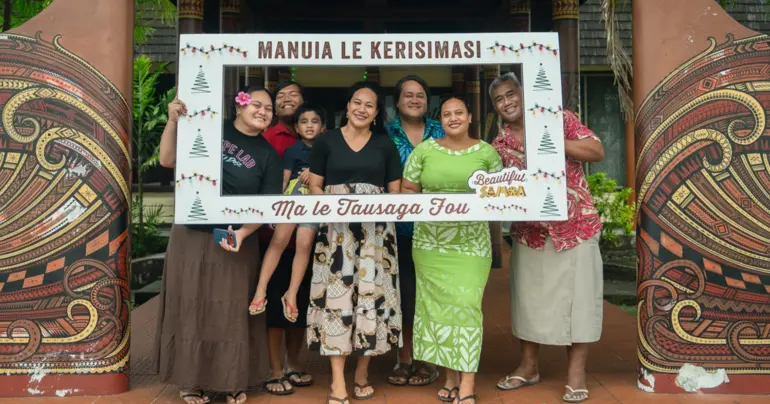Samoa staking its international standing but why?
 By The Editorial Board
•
29 May 2020, 8:24PM
By The Editorial Board
•
29 May 2020, 8:24PM
Samoa is just a dot on the world map and for hundreds of years, it remained relatively unknown due to the quirks of geography and our remote location.
This should not trouble us; those who do not educate themselves about the world being a vast and wide place are not worthy of concern.
But as we near Independence Day it’s worth reflecting upon how, for the past near six decades, Samoa has beaten against the tide of this ignorance to define and establish itself on the international stage.
This process began in 1962 when we strode first and confidently among Pacific states into the community of nations.
Despite our problems, Samoa has resisted the worst of the authoritarianism that has beset countries such as Nauru, Tonga and Fiji.
That owes much to our Constitution that blended the time-tested Westminster traditions for keeping power in check, an independent judiciary and, uniquely, balancing them with ancient village rights.
Since then we have become active members of the international community.
We have agreed to its declarations of principles on the rights of individuals, agreeing though our society is uniquely structured, but that we believe certain liberties and rights are non-negotiable for countries that wish to gain admittance to the community of nations.
The international community has been watching; those who matter have been watching, and Samoa has been gaining influence on global policy as a result.
In March we became the first-ever nation outside Switzerland to host a United Nations meeting on the Committee on the Rights of the Child.
The pathway for helping smaller island states out of the mire of enveloping climate change was named, not for nothing, the United Nations S.A.M.O.A. pathway.
And yet, as we approach our 58th anniversary of independence we are on the very precipice of throwing away all of this, our standing in the international community and our reputation for respecting human rights away for no good reason.
The only question that can be asked is: Why?
In today’s Weekend Observer we learn that our proposed overhaul of the L.T.C. and the removal of the right to Supreme Court judicial review of its cases has drawn the attention and condemnation of the United Nations Human Rights Commission.
The Commission’s Diego García-Sayán, Special Rapporteur on the independence of judges and lawyers warns that the proposed changes will risk leaving Samoa out of the community of nations which can boast of an independent judiciary - the cornerstone of good governance.
The L.T.C. bills if passed would irredeemably change the entirety of Samoa’s courts, Mr. García-Sayán writes, to such a degree that “their perceived independence and impartiality would be irremediably compromised.”
Earlier this week senior lawyer Muriel Lui listed a total of seven international human rights treaties to which Samoa has ratified and is obliged to follow which would consequently be at risk if the plan to create an autonomous L.T.C. and fundamentally restructure our judicial system is realised.
Chief among them is the United Nations Declaration of Human Rights.
The weight of fundamental treaties like these in determining a country’s international reputation on the international stage is hugely significant.
A total of 179 countries have ratified that Declaration, which is widely considered the most basic criterion for membership of the community of respected and civilised nations who are afforded a voice in the international debate.
But the list goes on, Mrs. Lui continued.
By denying the right of litigants to have decisions reviewed by a separate superior court we undermine one the founding principles of the International Covenant on Civil and Political Rights.
We ratified that document in 2008.
By passing a law that could potentially undermine our obligations under the treaty we stand with some of the following nations who have declined the invitation to make a public undertaking to protect civil rights: Bhutan, Brunei, Burma, Malaysia and North Korea and a handful more.
Mrs. Lui listed five other treaties that would be in jeopardy should the L.T.C. legislation, currently in its committee phase, be passed.
Critics will say these allegations are alarmist.
But the organisations sounding the alarm about our move to isolate ourselves from the international community are not given to exaggeration.
Amnesty International earlier this month warned against possible human rights breaches if the L.T.C. bills were passed. This is not an organisation known for seeking attention.
The International Bar Association’s Human Rights Institute has warned we risk our membership of international organisations such as the Commonwealth and untold future impact on our international reputation.
The Ombudsman Maiava Iulai Toma said while “highly desirable objectives,” the bills do not clearly achieve them in “any substantive way”.
“What the Bills appear to do is to merely stick the entirety of the Land and Titles Courts structure in the body of the Constitution and to place that structure and its deliberations outside of regular Constitutional surveillance provided for under the Constitution,” he said.
“With respect, what this creates is the impression of a fragmented rather than an integrated Constitution which doesn’t look any more Samoan than what we already have.”
All of this comes back to the big question about this L.T.C. overhaul: Why?
Conflict between village and individual rights has only materialised a handful of times in the nearly six decades of Samoa’s operation as an independent state.
A 2016 Inquiry into the L.T.C. found it was riddled mostly by administrative problems, none of which needed a constitutional overhaul to fix. The inquiry also expressly acknowledged the value of the Supreme Court review of L.T.C. decisions.
We have established a reputation as a nation-state that is a strong participant in the international community.
Latterly the international community is recognising our contributions as we exercise outsized influence on the world stage on issues likely to affect the world profoundly into the next century such as climate change.
Opponents say that we should not let the imperatives of the outside world dictate our domestic policy.
But nor should we needlessly ruin our reputation on the international stage for the sake of proving a point about sovereignty, one that has been generated by our own leadership - not the outside forces it rails against.
Besides, the idea that Samoa should not care about other nations is, simply, nonsense. Every sophisticated nation has a foreign policy and manages its foreign relations strategically. For Sama, sitting, as we do, between two great powers at a time of international moment, paying attention to the world’s regard for us and our relationships is especially important.
It is up to us whether we wish to trash a legacy built up meticulously over the past decades.
But we are yet to see a good reason for proceeding with these changes, as the list of risks of doing so grows longer by the day.
 By The Editorial Board
•
29 May 2020, 8:24PM
By The Editorial Board
•
29 May 2020, 8:24PM










